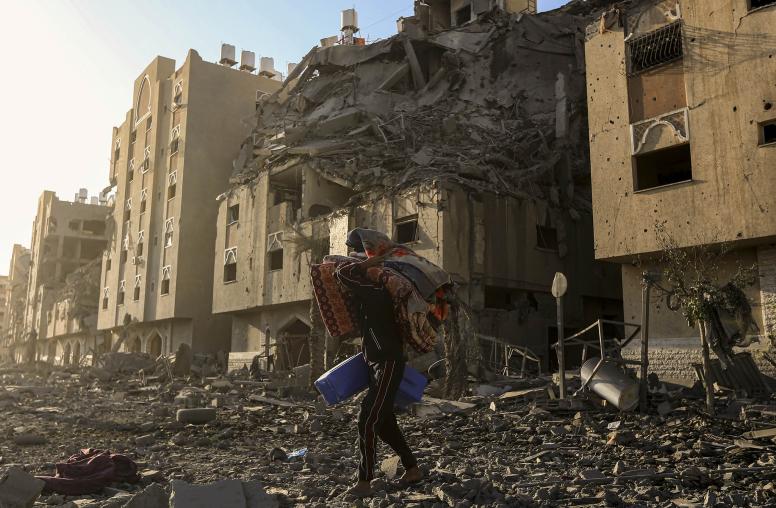Preventing Incitement and Promoting Peace
Israeli-Palestinian talks are at a standstill and Fatah-Hamas reconciliation moves raise new questions about the direction of the conflict and the continuation of Western aid. Meanwhile, religiously-motivated attacks in Israel and the Palestinian Territories are on the rise. Given the current low expectations for Israeli-Palestinian political negotiations, what is the role of religious leaders in preventing incitement and promoting peace? What has been achieved, and what are the current challenges to interfaith cooperation?
Read the event coverage, Holy Land Faith Leaders at USIP Discuss Building Peace

Israeli-Palestinian talks are at a standstill and Fatah-Hamas reconciliation moves raise new questions about the direction of the conflict and the continuation of Western aid. Meanwhile, religiously-motivated attacks in Israel and the Palestinian Territories are on the rise. Given the current low expectations for Israeli-Palestinian political negotiations, what is the role of religious leaders in preventing incitement and promoting peace? What has been achieved, and what are the current challenges to interfaith cooperation?
To address these questions, the United States Institute of Peace (USIP) is pleased to host a distinguished delegation from the Council of Religious Institutions of the Holy Land (CRIHL): the consultative body that comprises the most senior official Israeli and Palestinian religious leaders. CRIHL was established as the implementing body of the historic declaration signed in Alexandria, Egypt in 2002 in which Israeli and Palestinian religious leaders pledged to work together to end the violence and promote peace. Since the signing of the Alexandria Declaration, USIP has provided strong support to ongoing efforts to implement the document's goals.
This event will feature the following speakers:
- Canon Trond Bakkevig
Convener, CRIHL - Dr. Mahmoud Habash
Minister of Religious Affairs, Palestinian Authority - Rabbi Yona Metzger
Ashkenazi Chief Rabbi of Israel - His Beatitude Fouad Twal
Latin Patriarch of Jerusalem - Mr. Oded Wiener
Director General of the Chief Rabbinate of Israel - Bishop Dr. Munib Younan
Head of the Evangelical Lutheran Church in Jordan and the Holy Land - Mr. Salah Zuheikeh
Director General of the Palestinian Authority's Ministry of Religious Affairs - Dr. Richard Solomon, Introductory Remarks
President, USIP - Dr. David Smock, Moderator
Senior Vice President of the Religion and Peacemaking Center, USIP
Explore Further
- Learn more about USIP's work in Israel and the Palestinian Territories
- Read On the Issues by Lucy Kurtzer-Ellenbogen, "Year in Review: Palestine/Israel Outlook"
- Explore the multimedia archive from USIP's "Twenty Years After Madrid: Lessons Learned and the Way Forward"



